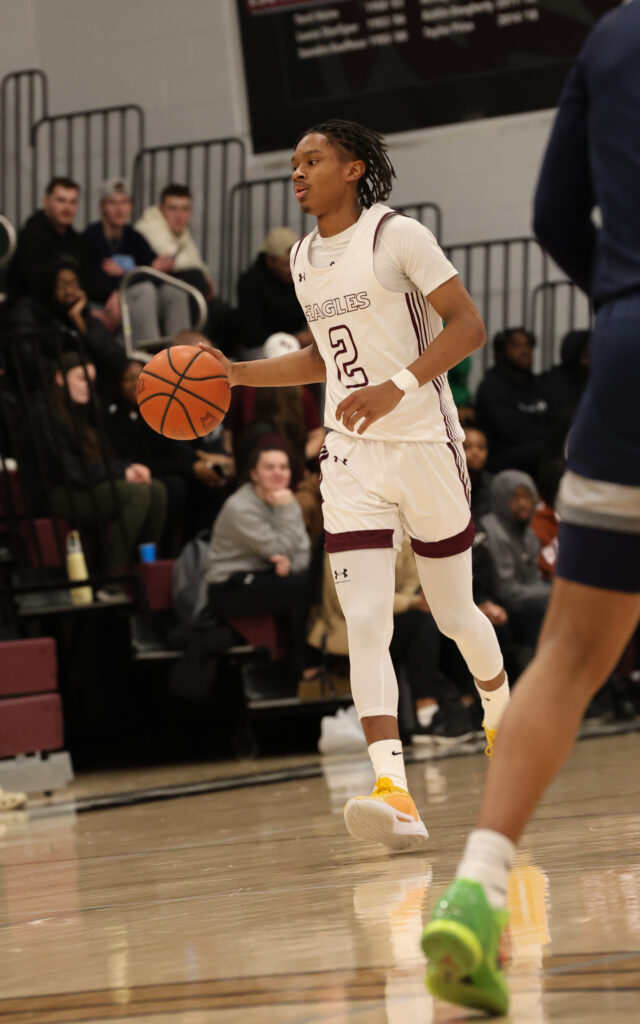Sports serve as one of the largest sources of entertainment in America and around the world. The global sports market is a multi-trillion-dollar industry. Sports almost always begin as a source of enjoyment for young athletes. As athletes develop and strive to play at higher levels, the demands increase. It is estimated that more than half of American children between the ages of 6 and 17 participate in organized sports. Participation in youth sports has always been prevalent in America, and it continues to grow.
Beyond youth sports, the NCAA reported, “More than 550,000 student-athletes competed in NCAA sports during the 2024–25 academic year. This number represents a record, with student-athletes participating on nearly 20,000 teams across the NCAA’s three divisions.” Playing sports at the collegiate level is extremely sought after, and this is evident here at Eastern.
Athletics at Eastern are a large part of the school’s identity. Student-athletes make up over half of the student body, and the sports teams carry the Eastern brand into spaces that only athletics can reach. With such a strong emphasis on sports, it naturally becomes a defining part of many young athletes’ identities.

Credit: Jason Karch / The Waltonian
Jose Tapia, a sophomore on the new wrestling team at Eastern, discussed the balance of being a student-athlete and how that balance impacts his relationship with his sport. Tapia expressed that playing a sport at Eastern has many positive benefits but also demands a lot, which can lead to difficulties. “After joining the wrestling team, it brought back the joy and love I had for the sport, but also gave me doubts about my skills and abilities,” Tapia said. He explained that playing a sport at the collegiate level takes up a lot of time, and balancing athletics with school and other commitments limits his ability to give his all to everything. Tapia described how playing a sport can create an overall busyness that makes balance extremely difficult.
Junior tennis player and former soccer player Jared Groff expressed similar feelings about the busyness that comes with playing a sport in college. Groff explained that his perspective on sports has changed since coming to Eastern. “At Eastern, I have played soccer and tennis, both of which I love. However, participating in both sports has taken up too much of my life. I cut back because I realized you can’t do it all, and there are other things more important than sports. Sure, there are lots of valuable lessons sports can teach you, but there is more to life than the sports we play or the things we do. I still take my sport seriously, but I have bigger priorities, and making time for those priorities has been essential for me.”
Senior track and cross-country runner Jason Karch expressed that running for Eastern has helped his mental health. “With running, it gives me about an hour a day of peace with nature, which I have really learned to love,” Karch said. While sports have improved Karch’s mental health, he also noted how his collegiate running career has changed his perspective on athletics as a whole. Karch said that he now has a greater respect for upcoming athletes and a deeper appreciation for professional athletes. He explained that he has a more in-depth understanding of the amount of work professional athletes must put in to succeed. “Running at the collegiate level makes me give more credit to the professional players since I’ve seen the amount of work our athletes put in,” Karch stated.
Many children in this country grow up with aspirations of playing sports at the next level. One thing that every Eastern athlete I spoke with expressed is that improving in sports takes time. They acknowledged that the sports world is ultra-competitive and that it is incredibly difficult to outwork the competition. Through my conversations with a handful of athletes, one consistent theme stood out: almost all of them mentioned that their sport adds some element of stress to their lives.
Speaking with Eastern athletes truly puts into perspective the difficulties that professional athletes face. Although making it in the sports world is seen as glamorous and highly sought after, there are countless challenges that come with it. Playing sports requires sacrifice, a significant time commitment, and it certainly impacts mental health. Although gratifying for many, the weight of collegiate athletics comes with a high degree of responsibility and commitment.

